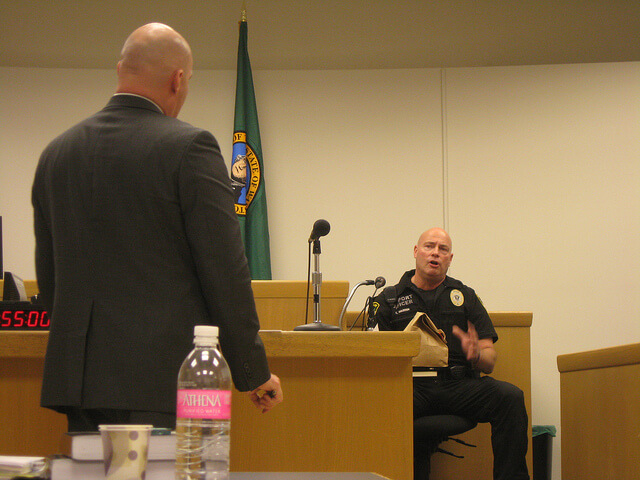We touched on the topic of criminal defense investigation in our article on legal investigation but you might be left with some questions. Why do criminal defendants need investigators? Aren’t the police the ones who investigate crime? It may surprise you to learn that criminal defendants often employ their own detectives to investigate the facts and circumstances surrounding a crime.
To understand this, it’s important to know how our criminal justice system works. Under the eyes of the law, defendants are innocent until proven guilty beyond a reasonable doubt. These aren’t just some words that defense attorney say to themselves when they go to sleep at night, they’re part of the very fabric of our criminal justice system. Perhaps the most common formulation of this concept is “innocent until proven guilty.” Although these exact words aren’t actually in the United States Constitution, they embody an important jurisprudential concept originating with Roman law and passed down through the ages. This concept is expressed in the 5th and 6th amendments to our Constitution, which guarantee due process and trial by jury to all those accused of crimes.
The long and short of all this legal mumbo-jumbo, is that sometimes criminal defense investigations are necessary to ensure that people accused of crimes have a fair trial. When you have a whole police force and a prosecutor’s office aligned against you, it’s helpful to have some people in your corner as well, and along with your lawyer, a criminal defense investigator is one of those people.

In What Situations Should A Lawyer Conduct A Criminal Defense Investigation?
Not every criminal defendant has a defense investigator. The decision to employ or use an investigator in a particular case is up to the lawyer’s judgment. If there are no facts in dispute, an investigator probably won’t be necessary. However, a person accused of a crime will often tell their lawyer that they didn’t do it. Maybe they have an alibi but the cops don’t believe them, or maybe they have a very different story of the night of the crime than the cops do. In this case the lawyer will need to make a professional judgment call, sometimes the defendant’s story is worth checking out. Maybe the cops didn’t follow up about the alibi because they didn’t believe the defendant, or maybe they just got busy and didn’t have the time. Nobody’s perfect and the police are no exception.
In this situation, the lawyer will probably want the expertise of a trained investigator to follow up on all the leads and make sure the cops didn’t miss anything. Often it’ll take a good deal of snooping to verify a client’s story, and most lawyers don’t want to get their hands that dirty. On the other hand, even if all it requires is going to the scene of the crime, taking a look around and taking a few photos, it can still be a good idea to use an investigator. This is because the lawyer could accidentally make themselves a witness by becoming too involved in the investigation process. Making yourself a witness in your own case is a rather questionable and uncomfortable situation that every lawyer should seek to avoid.
These are just a few of the many situations in which a criminal defense investigator could come in handy. While it might seem counterintuitive that a detective would be working against the police, it’s a sad truth that sometimes innocent people are put on trial, and a defense investigator is often an indispensable part of making sure they aren’t convicted.




